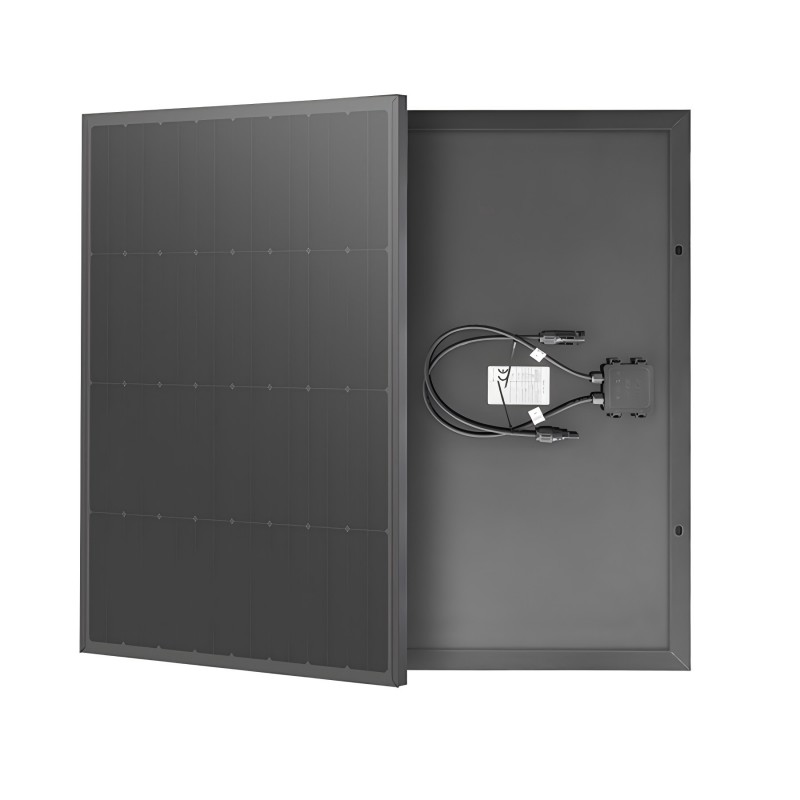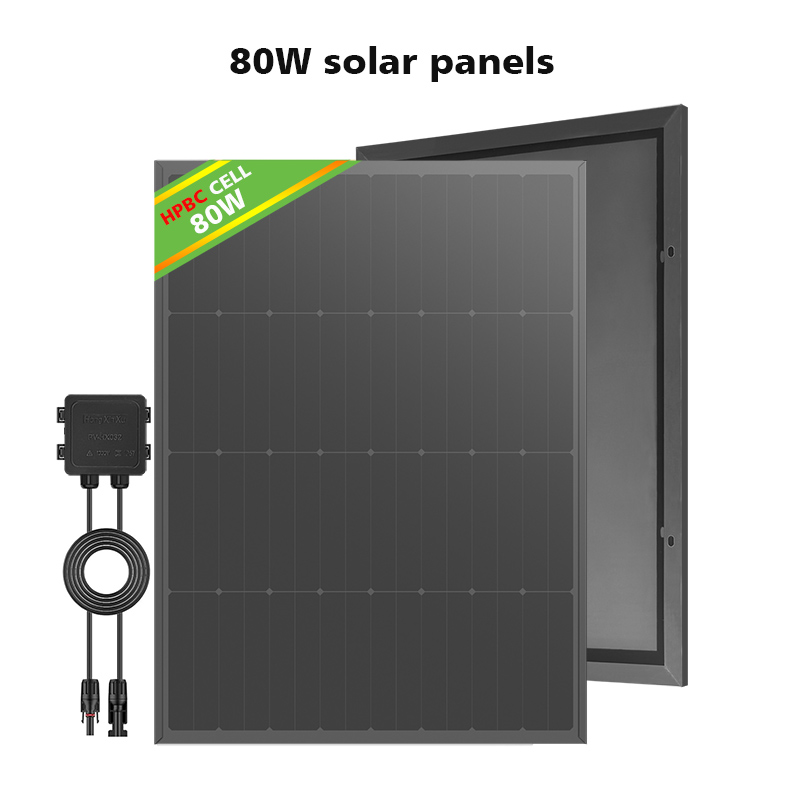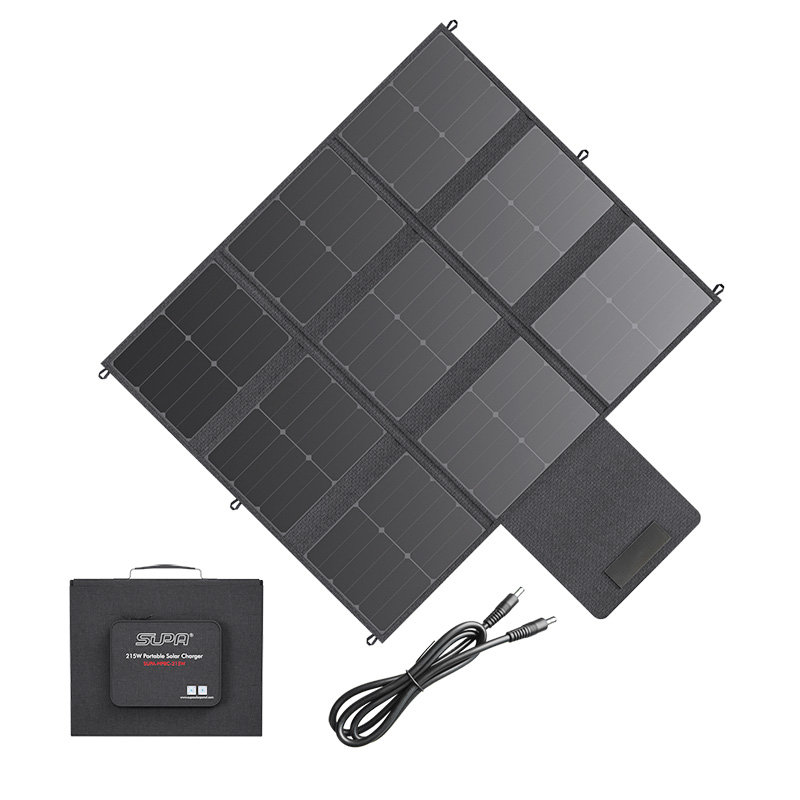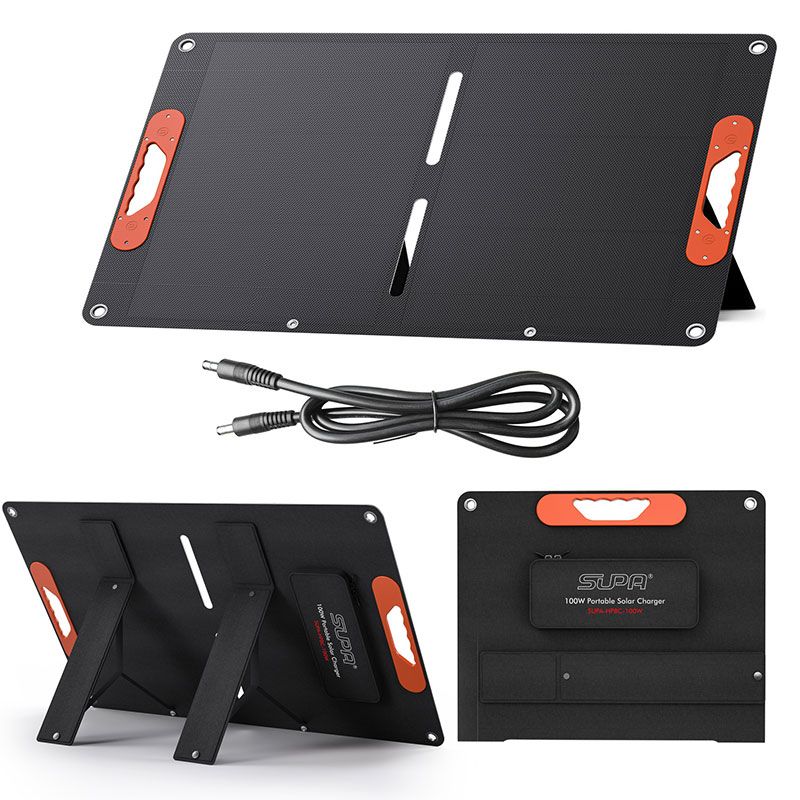Company News
Flexible solar panels, as an innovative form of solar cell technology, work in a similar way to traditional solar panels, both based on the photoelectric effect. When sunlight shines on the photosensitive material of a flexible solar panel, photons excite the electrons in the material, causing them to jump into the conductor band, thereby generating an electric current. This current then passes through the circuit inside the battery and can be used to drive various electronic devices or stored for later use. The key to flexible solar panels is that they use flexible substrate materials instead of the rigid structure of traditional silicon substrates. This flexible substrate material has good flexibility and plasticity, and can bend and stretch freely on a curved surface, which greatly expands its application range. The biggest advantage of flexible solar panels is that they are bendable and foldable, making them easy to carry and transport. This feature makes them particularly suitable for outdoor activities (such as camping, travel, and exploration). Users can easily place them in backpacks, tents, or car roofs to collect solar energy and convert it into electricity at any time.
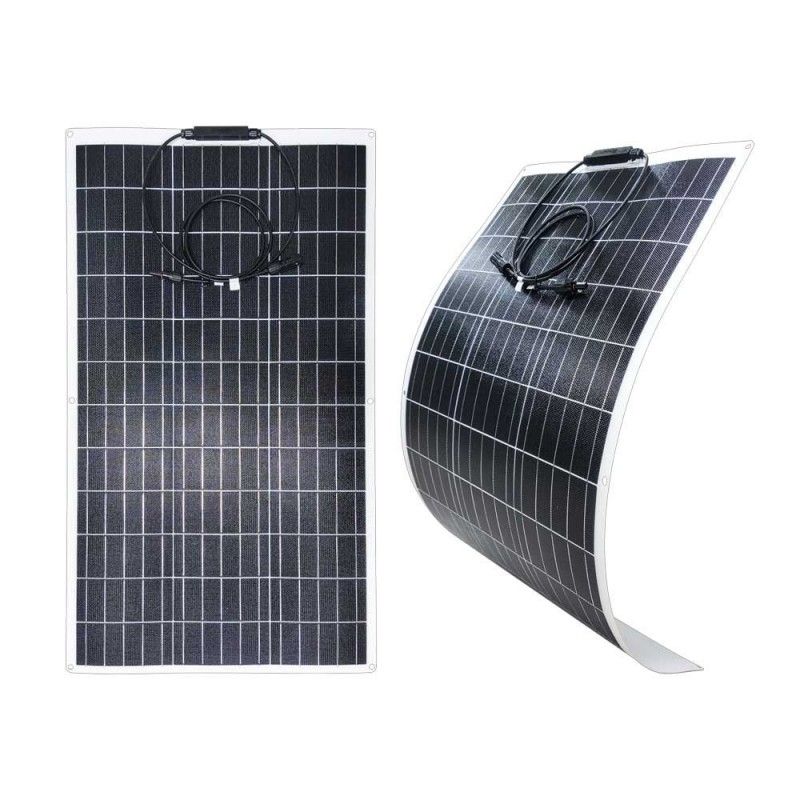
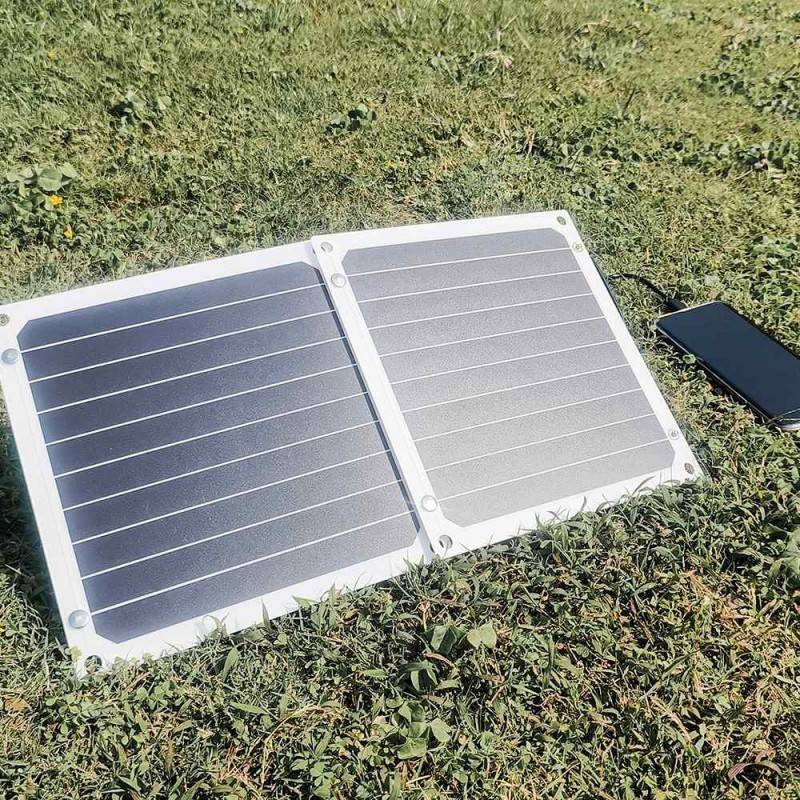
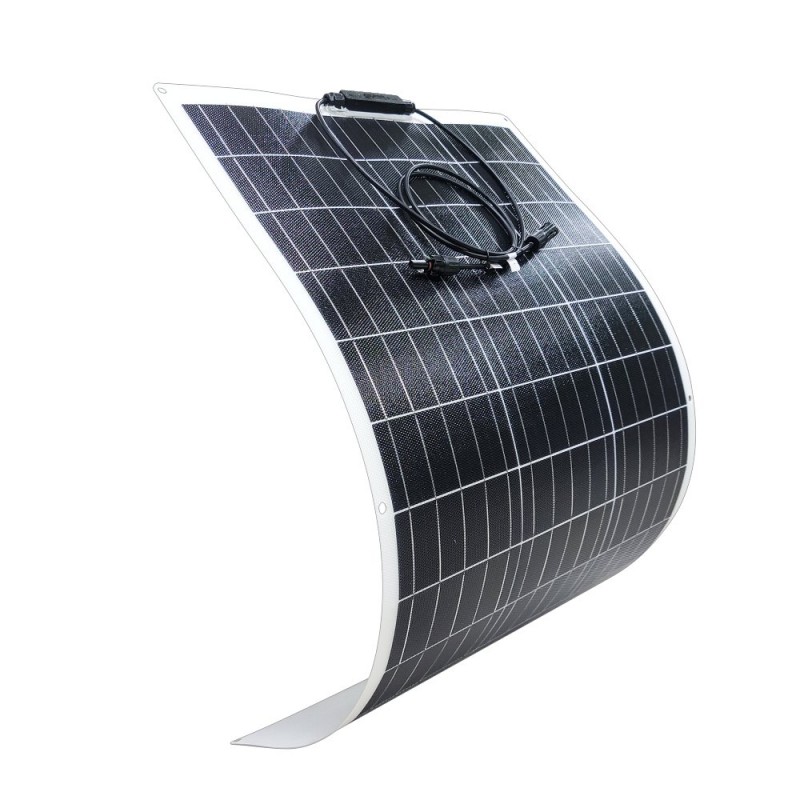
1. Wide application scenarios:
Due to their bendability, solar power flexible panels can be applied to more scenarios that traditional solar panels cannot reach, such as the top of streamlined cars, the cabin surface of sailboats and racing boats, and the roofs and exterior walls of buildings. In addition, in the field of photovoltaic building integration (BIPV), flexible solar panels can be integrated into windows, roofs or interior walls to make full use of solar energy resources.
2. High efficiency and thinness:
Solar power flexible panels perform well in terms of photoelectric conversion efficiency, and the photoelectric conversion efficiency of some products can reach more than 21%. At the same time, its weight and thickness are much lower than traditional solar panels. Flexible solar panels of the same size weigh only 1/10 of traditional panels and are only 1/5 of the original thickness, which makes them more convenient during installation and use.
3. Weather resistance and high temperature performance:
Solar power flexible panels also have certain weather resistance and high temperature performance, and can work normally in harsh weather environments and high temperature weather, which enhances their stability and reliability in practical applications.
There is a huge difference between flexible solar cells and traditional cells in the way they are used. It is also because of these differences that solar cells have a more comprehensive application direction.As a trusted brand in the solar energy industry, SUPA flexible solar panel manufacturers is dedicated to providing cutting-edge solutions for portable and flexible solar power. With a strong focus on innovation, quality, and performance, SUPA delivers solar products that meet the needs of a wide range of customers, from outdoor enthusiasts to businesses seeking sustainable energy solutions.Backed by years of experience and advanced manufacturing technology, SUPA ensures that each product not only meets high industry standards but also exceeds customer expectations. Our commitment to quality and sustainable energy drives our mission to bring reliable, eco-friendly power solutions to more people around the world.
FAQ:Flexible Solar Panels
Q1: What are some innovative applications of flexible solar panels that haven't been fully explored yet?
A1: Flexible solar panels have immense untapped potential, especially in wearable technology. Imagine integrating solar panels into clothing or backpacks that can charge devices while you’re on the go. Another area is in aerospace, where flexible solar cells could be used on drones or satellites to provide a lightweight, efficient power source. Additionally, there’s growing interest in using them for agricultural technology, such as solar-powered greenhouses that can help regulate energy use while maximizing space.
Q2: How does the photoelectric efficiency of flexible panels compare with the most advanced traditional solar panels?
A2: While flexible solar panels can achieve up to 21% efficiency, the most advanced traditional silicon-based solar panels can reach efficiencies of around 22-24%, with some even exceeding 26% in laboratory settings. However, the key advantage of flexible solar panels is their adaptability and ease of use in places where rigid panels aren’t practical, making up for the slightly lower efficiency with greater versatility and lighter weight.

